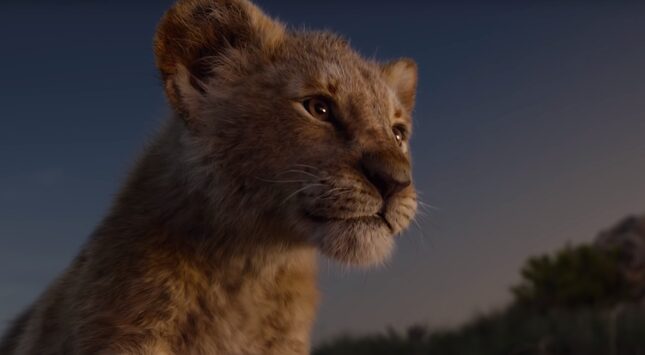
Screenshot: Disney
The kindest thing I can say about Disney’s new film The Lion King is that it exists. The much-touted “live action” remake is adequate, and does in fact manage to deliver on its basic premise. There are lions. They are kings! Beyoncé is there! Billy Eichner cracks jokes! It is, generally speaking, a very pretty nature documentary. As to whether the film is any good is a different conversation entirely. There are a lot of disparate elements to Beyoncé and Friends: The Movie, but none of them seem to coalesce into anything more than a naked money grab.
It’s a pity, because there was no reason that a film with a cast that included the likes of Chiwetel Ejiofor, Alfre Woodard, and James Earl Jones should be as flat and uninteresting as this was. Disney assembled a bigger, better, and blacker cast for this second bite at the apple (third, if you count the Tony-winning, highest-grossing-in-the-history-of-Broadway stage adaptation,) but failed to do anything exciting or novel with it. Even “Spirit,” the new track from Beyoncé (a gorgeous song that I love very much, please tell the BeyHive to leave my family alone) feels intensely market-tested to be just commercial enough to stay top of mind when Oscars nomination season opens.
The biggest, most glaring problem with the film is that it’s difficult to build an emotional story arc around a set of animal characters that are deliberately not anthropomorphized. Real lions do not smile, or sing or otherwise express human emotions. But if millennials are to be believed, the original 1994 version of The Lion King was so impactful precisely because of its high emotional stakes.
If your characters can’t convey the depth of their feeling or meaningfully signal their inner journey to the audience, all you’re left with is an inert waste of everyone’s time in which large sections of the film read like a poor audio dubbing of something on the National Geographic channel. For such a strong cast, the actual performances are surprisingly touch and go. Evaluations below.
-

-

-

-

-

-

-

-

-

-

-

-

-

-

-

-

-

-

-

-

-

-

-

-

-

-

-

-

-

-

-

-

-

-

-

-

-

-

-

-








































